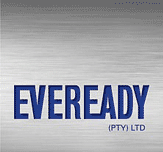The Importance of Lifelong Learning for Career Advancement

In today’s rapidly evolving world, the concept of a traditional career path is becoming increasingly outdated. Technological advancements, economic shifts, and changing market demands have transformed the employment landscape, making it essential for professionals to embrace lifelong learning to stay competitive and advance their careers. Lifelong learning refers to the ongoing acquisition of knowledge, skills, and competencies beyond formal education. It is a mindset and a commitment to personal and professional growth that can have a profound impact on career success. Here, we delve into the importance of lifelong learning and how it can fuel career advancement.
- Adaptability in a Changing Work Environment The dynamics of the job market are continually evolving, driven by emerging technologies and industry disruptions. Lifelong learning equips individuals with the ability to adapt to these changes, ensuring they remain relevant and valuable. By staying up-to-date with industry trends, new tools, and techniques, professionals can proactively respond to shifting demands and acquire the necessary skills to excel in their roles. This adaptability is highly sought after by employers, as it demonstrates a willingness to embrace change and contribute to the success of an organization.
- Enhanced Problem-Solving and Critical Thinking Skills Lifelong learning fosters the development of critical thinking and problem-solving skills, which are highly valued in the workplace. Continuous learning exposes individuals to diverse perspectives, new ideas, and innovative approaches to problem-solving. It enables professionals to think creatively, analyze situations from multiple angles, and generate effective solutions. These skills are crucial for career advancement, as they enable individuals to tackle complex challenges, make informed decisions, and contribute meaningfully to their organizations.
- Increased Professional Competence As industries evolve, so do the knowledge and skills required to excel in them. Lifelong learning allows professionals to expand their expertise and acquire new competencies. By pursuing relevant courses, certifications, workshops, or conferences, individuals can stay at the forefront of their fields and demonstrate their commitment to professional growth. The acquisition of new knowledge and skills enhances professional competence, increasing the likelihood of career advancement opportunities such as promotions, new responsibilities, or leadership roles.
- Building a Strong Professional Network Lifelong learning often involves interacting with peers, experts, and mentors in one’s field of interest. These interactions provide an excellent opportunity to build a strong professional network. Networking can open doors to new career prospects, mentorship opportunities, and collaborations. Engaging with others in a learning environment allows professionals to exchange ideas, gain insights, and tap into a diverse range of experiences. A robust professional network can significantly enhance career advancement prospects by providing access to valuable resources, guidance, and potential career opportunities.
- Personal Fulfillment and Well-being Lifelong learning extends beyond the realm of professional development and contributes to personal fulfillment and well-being. Engaging in learning activities that align with one’s passions and interests fosters a sense of purpose and satisfaction. It allows individuals to explore new subjects, broaden their horizons, and nurture a continuous thirst for knowledge. The pursuit of lifelong learning promotes intellectual stimulation and personal growth, leading to increased overall well-being. This positive mindset and personal fulfillment can have a cascading effect on career advancement, as individuals who are genuinely passionate about their work are more likely to excel and seize new opportunities.
In conclusion, lifelong learning is no longer a luxury but a necessity for career advancement in today’s dynamic world. It enables professionals to adapt to changing work environments, enhance their problem-solving and critical thinking abilities, increase their professional competence, build a strong network, and find personal fulfillment. Embracing a lifelong learning mindset allows individuals to stay ahead of the curve, seize new opportunities, and continually progress in their careers. As the renowned philosopher Alvin Toffler once said, “The illiterate of the 21st century will not be those who cannot read and write, but those who cannot learn, unlearn, and relearn.”
